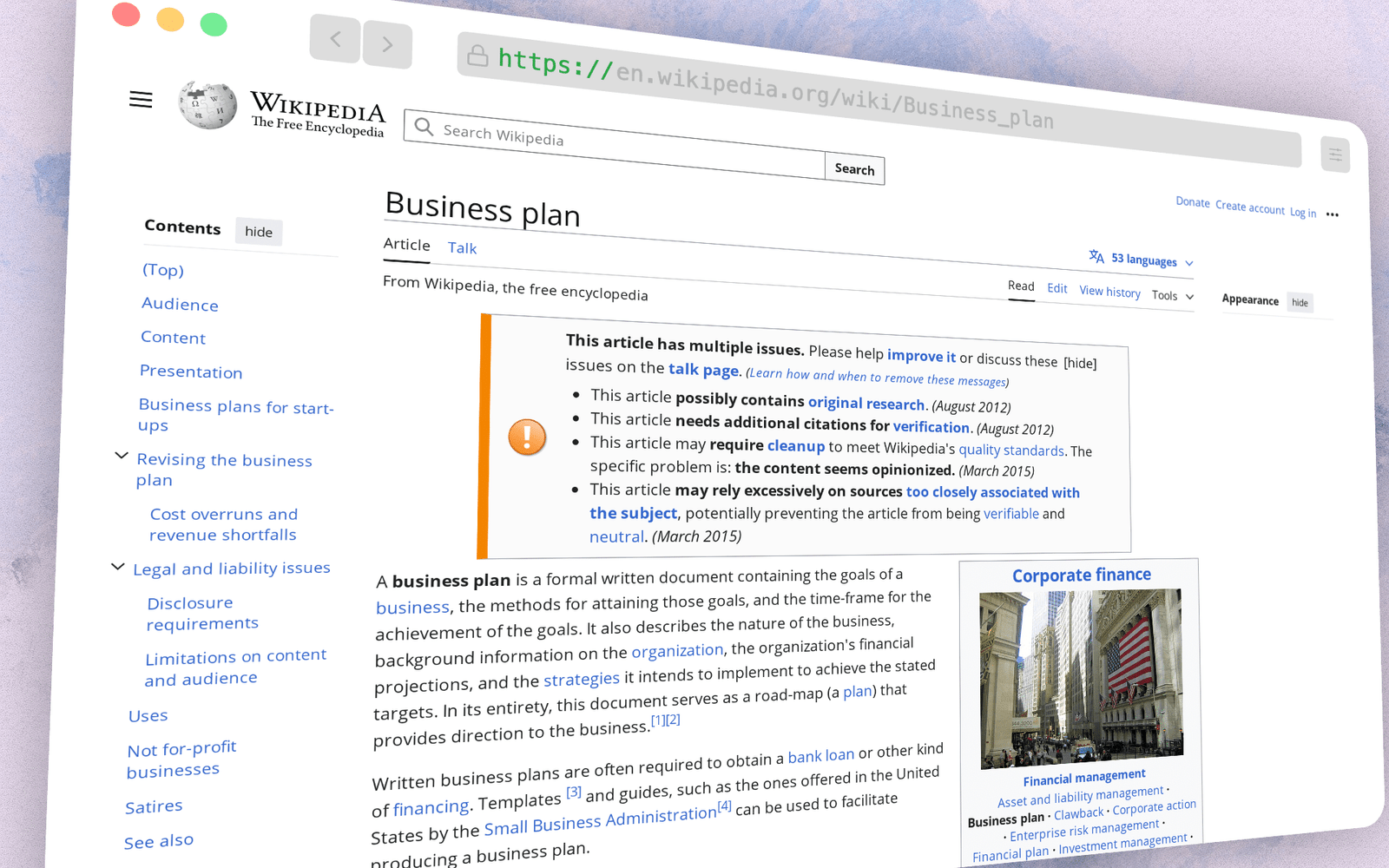
The Hidden Costs of Neglecting a Business Plan
Neglecting a Business Plan: The Costly Mistake Startups Make
Is business just luck and throwing spaghetti against the wall to see what sticks? Or are there fundamental principles that separate successful entrepreneurs from those who crash and burn?
I’ve been starting and growing businesses for over five years through my consulting firm, Coaching 4 Companies. During that time, I’ve advised countless entrepreneurs. And let me tell you—the ones who followed key business principles reduced their risk, effort, and cost. The ones who ignored them? They wasted time, money, and resources.
One of the biggest mistakes I see? Starting a business without a structured plan.
A solid business plan isn’t just a formality—it’s the foundation of your success. Without it, you’re setting yourself up for failure. Let’s talk about why so many founders skip this crucial step and the consequences of neglecting a business plan.
Why Founders Ignore Business Planning (And Why It’s a Huge Mistake)
For some reason, people treat business differently from every other discipline. If a doctor tells you to take medicine for your kidney pain, you listen. If a lawyer gives you legal advice, you follow it. But when it comes to business, too many people think it’s all about instinct, gut feeling, or getting lucky.
Reality check: Business is a structured discipline governed by principles. You wouldn’t build a house without blueprints—so why start a business without a plan?
Despite this, many founders make the mistake of skipping a business plan because:
- They think it’s unnecessary. They assume they can “figure it out as they go.”
- They’re impatient. They want to jump straight into launching and selling without planning.
- They don’t know how. Writing a business plan sounds intimidating, so they avoid it.
- They think it only matters for investors. They assume that if they’re self-funding, they don’t need a plan.
But here’s what actually happens when you neglect a business plan.
The Consequences of Skipping a Business Plan
1. No Clear Direction (Winging It Leads to Failure)
Without a business plan, you have no real strategy. You’re just reacting to whatever comes your way. That leads to:
- Unclear goals: What exactly are you trying to achieve? If you don’t define it, you’ll never reach it.
- Inconsistent decision-making: You’ll constantly second-guess yourself without a roadmap.
- Wasted resources: You’ll burn time and money on things that don’t actually move your business forward.
A business plan forces you to clarify:
✅ What problem you’re solving
✅ Who your ideal customers are
✅ How you’ll stand out from the competition
When you skip this step, you’re flying blind—and that’s a recipe for disaster.
2. Struggling to Secure Funding (Investors Need a Plan)
Need funding to launch or scale your business? Investors and banks want to see a concrete plan before they trust you with their money.
Without a business plan:
- You’ll struggle to convince investors. They want to see financial projections, a market analysis, and a clear strategy before investing.
- Banks won’t take you seriously. If you’re applying for a loan, lenders need to see a structured plan that proves you can repay the money.
- Even bootstrapped businesses suffer. If you’re self-funding, a plan helps you allocate money wisely instead of burning through cash with no strategy.
A well-structured business plan reduces risk for investors and increases your chances of securing funding.
3. No Roadmap for Growth (You’ll Lose Focus)
A business plan isn’t just for the launch phase—it’s a living document that guides your growth.
Without one, you’ll constantly be putting out fires instead of making strategic decisions that scale your business. You might:
- Chase too many opportunities at once. Without a clear focus, you’ll get distracted and spread yourself too thin.
- Struggle to adapt. A good plan helps you anticipate challenges and pivot strategically.
- Fail to measure progress. If you don’t track key metrics, how will you know if you’re succeeding?
A business plan helps you stay on track, make informed decisions, and adjust as needed.
How to Avoid These Pitfalls: Build a Business Plan (The Right Way)
The good news? Creating a business plan doesn’t have to be complicated. Here’s how to break it down into manageable steps:
1. Executive Summary
Your elevator pitch—a concise overview of your company, mission, and goals.
2. Company Description
Detail your products or services, target market, and competitive advantage.
3. Market Analysis
Research your industry, competitors, and target audience. What are their needs, pain points, and desires?
4. Marketing & Sales Strategy
How will you attract and convert customers? What channels will you use?
5. Management Team
Investors want to know who’s running the show. Highlight your team’s expertise and qualifications.
6. Financial Projections
Forecast your revenue, expenses, and profitability. If this feels overwhelming, use tools like AI-powered business plan generators.
Still unsure how to get started? Check out this guide on how to write a business plan australia. Just remember—templates are a starting point, not a substitute for real strategy.
Final Thoughts: Business Is a Discipline, Not a Gamble
Success in business isn’t about luck—it’s about strategy, execution, and discipline.
A business plan isn’t just paperwork. It’s your blueprint for success. It keeps you focused, helps you secure funding, and provides a roadmap for sustainable growth.
If you’re serious about building a business that lasts, stop treating business like a game of chance. Take control. Build a plan. And set yourself up for real success.
About the Author
Wayne Brown is the CEO of Coaching 4 Companies, based in Hong Kong, with branches in Singapore, Shanghai, and Australia. His firm specializes in business consulting, coaching, and executive development services designed to help SMEs achieve real performance, growth, and value. Wayne and his team have delivered impactful programs for Fortune 500 companies, including Siemens, Amazon, Google, and Coca-Cola.